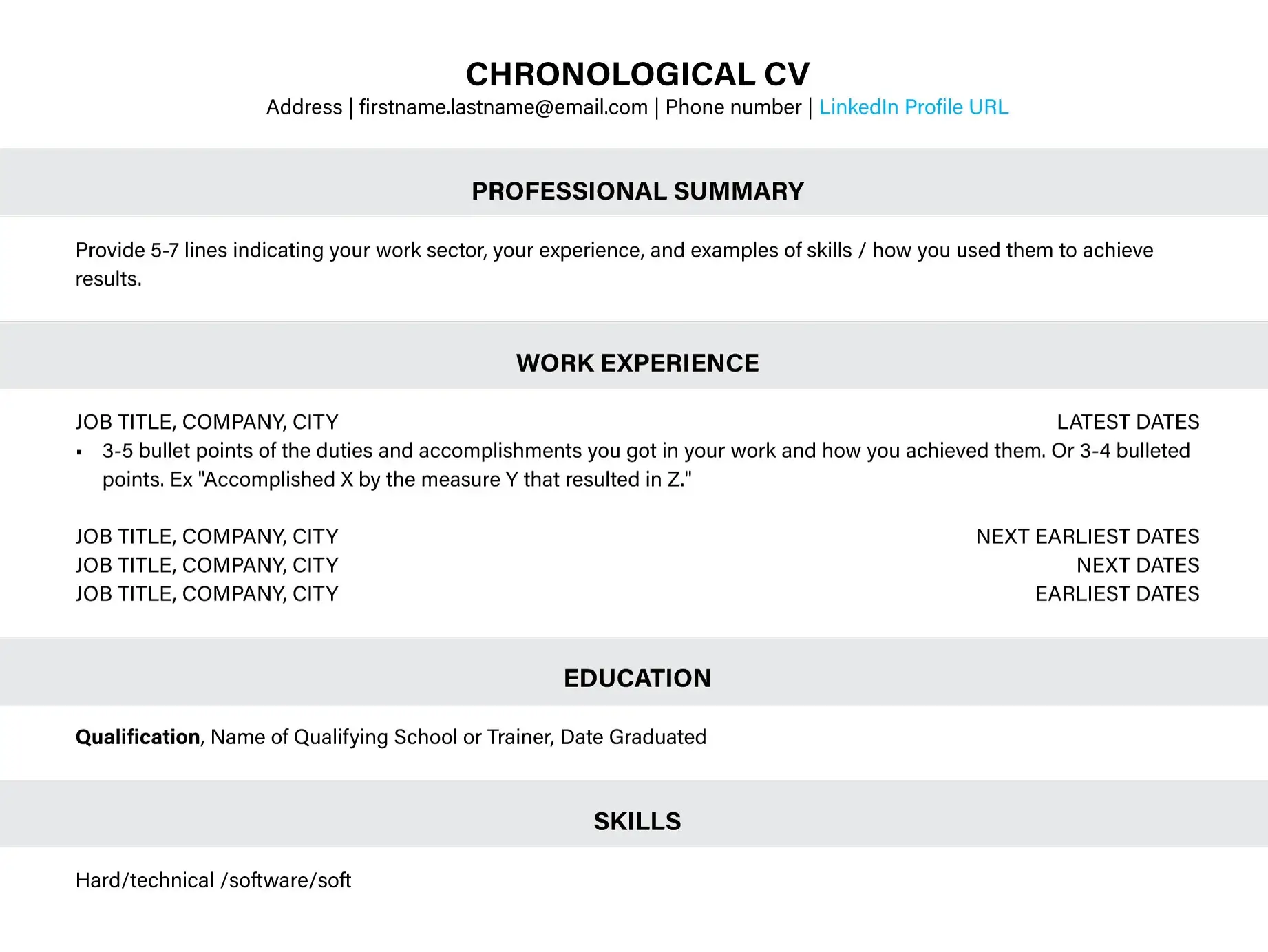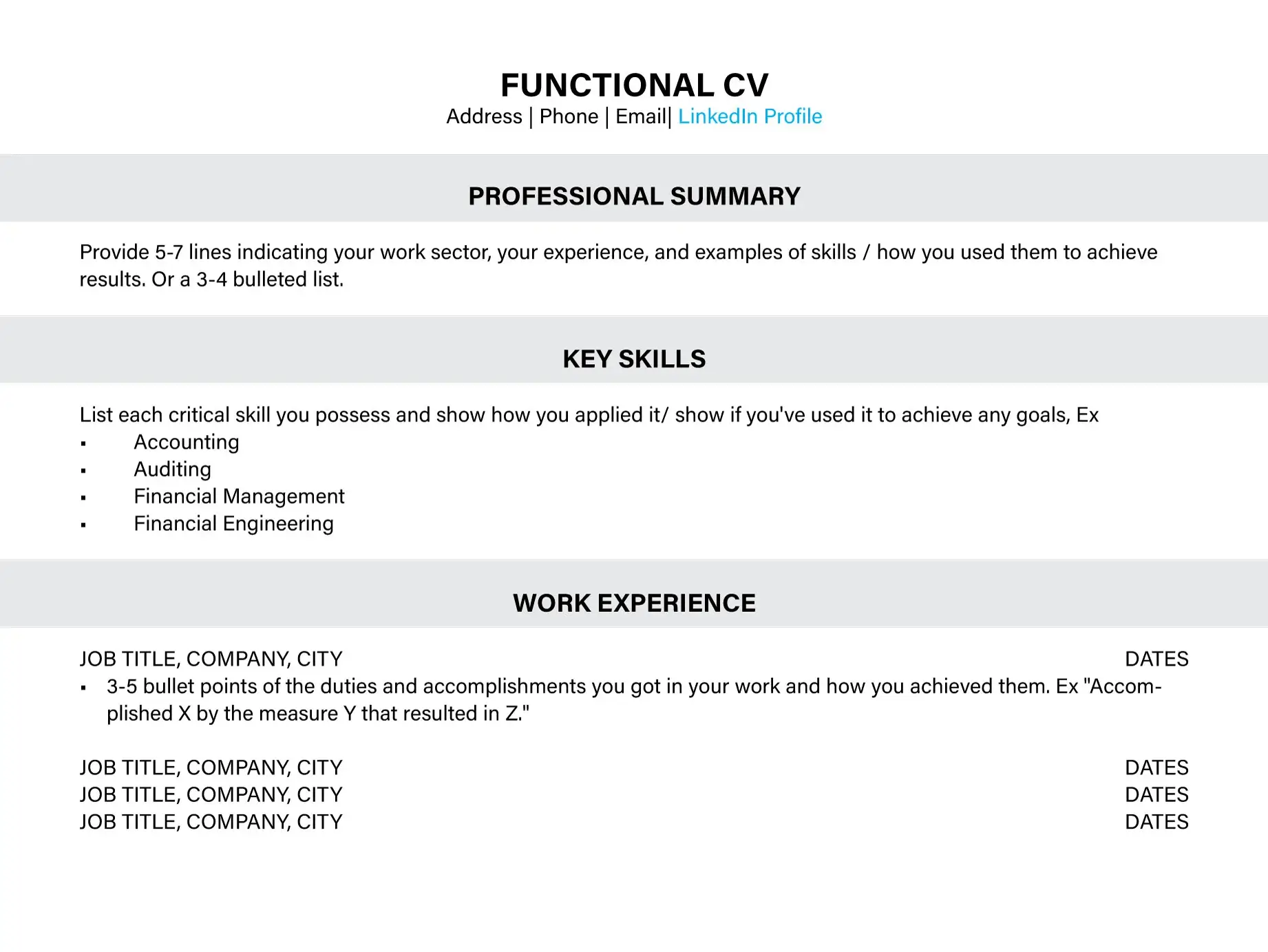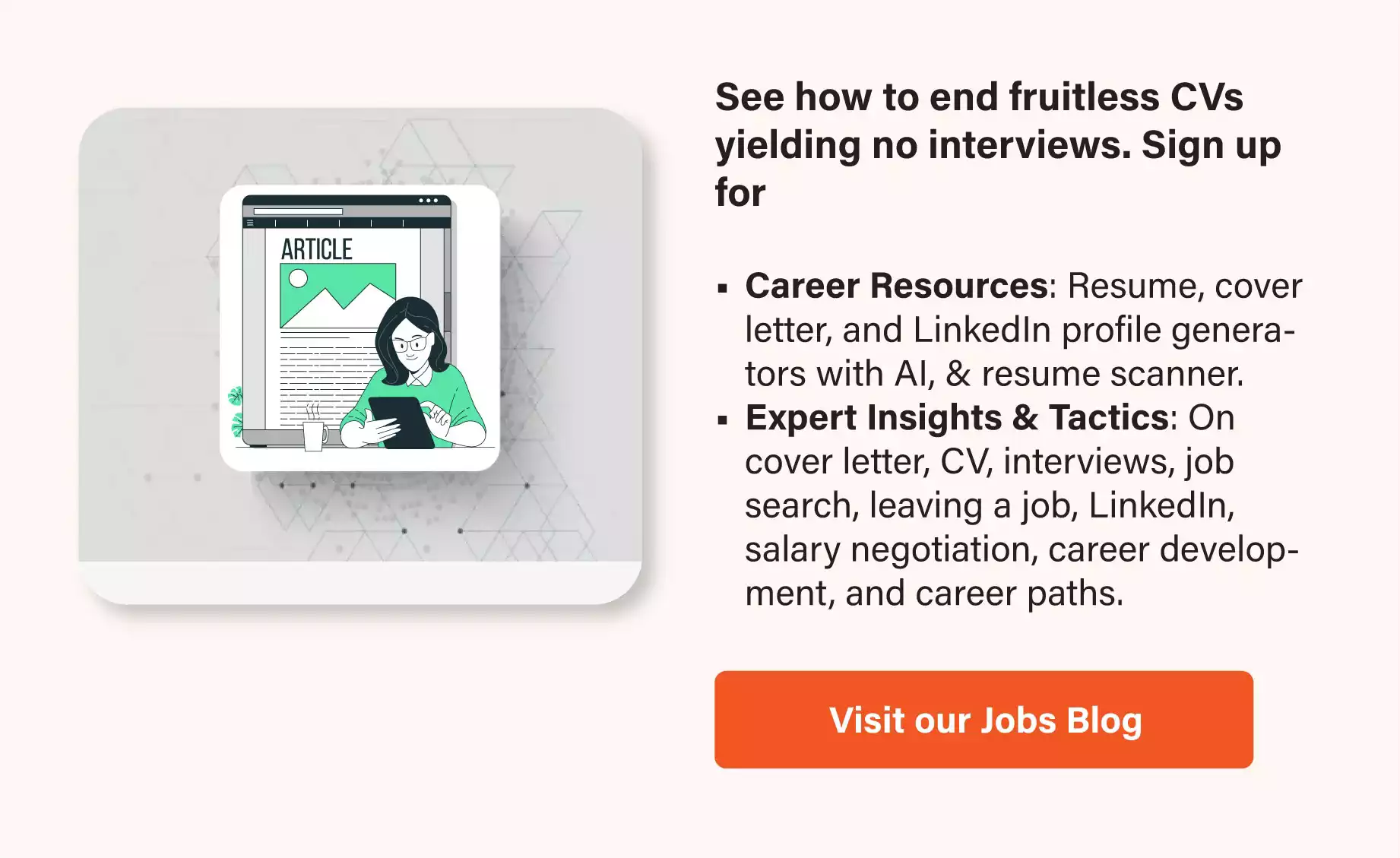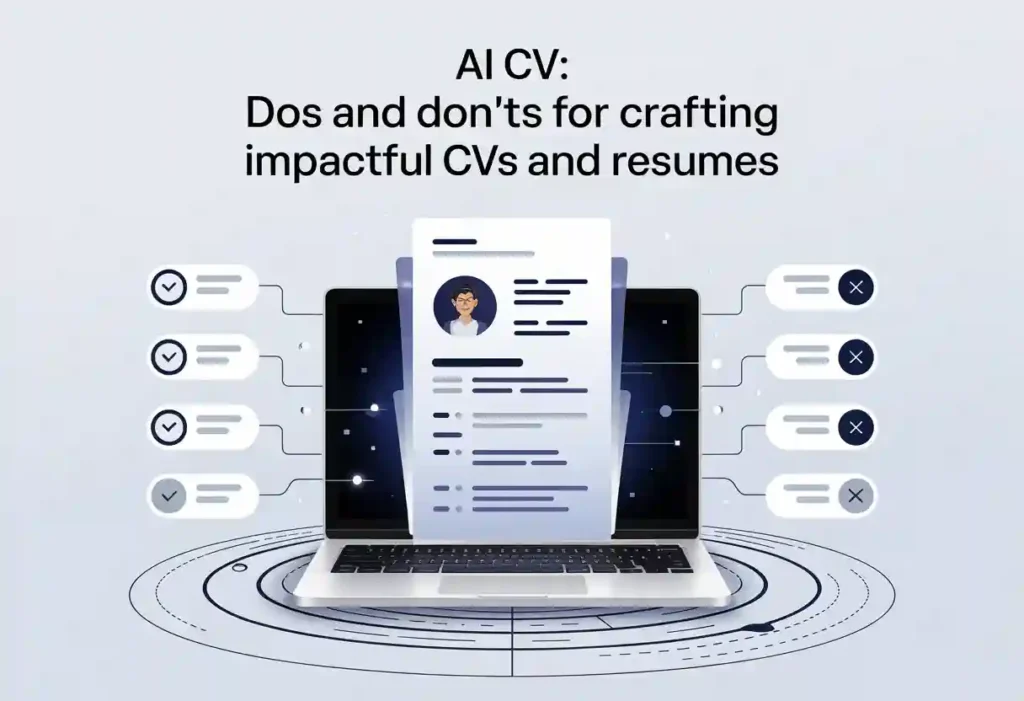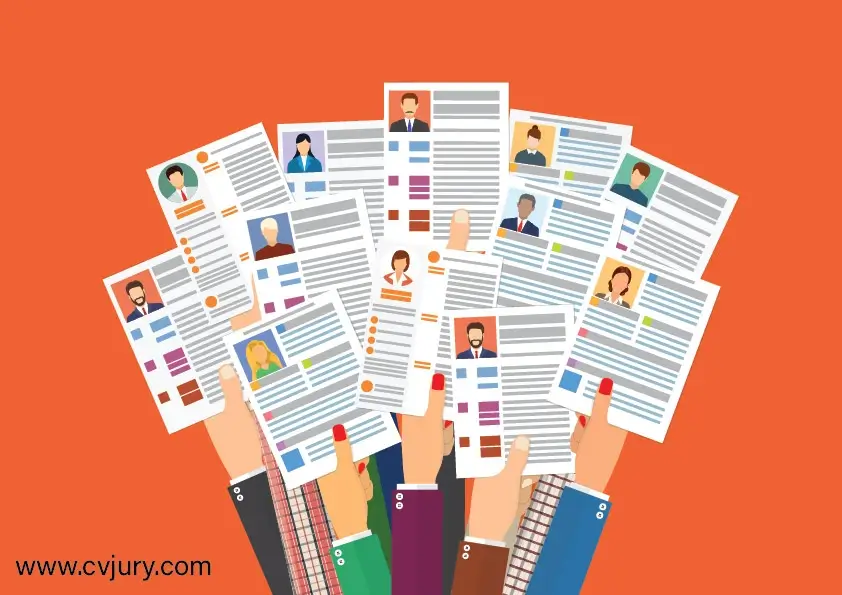
Mastering CV Fundamentals: Beyond Basic Tips
Over 10,000 articles on the internet are currently talking about how to write and boost your CV. You can quickly review any of them, pick one or two points, and apply them to your CV. And keep hoping that whatever you have done to your CV works and gets you to the front door of your dream job.
To be honest with you, that’s what most people doing a job search do now: hope and wait.
If you are comfortable with the hope-and-wait game, stop here, go to the next link, and pick one or two points.
But if you are tired of the hope-and-wait game and want the “holy grail” of all the top tips, you must know how to make your CV stand out. If you want to significantly boost your chances of securing your dream job, you are at the right place.
In this post, we will be discussing:
- Understanding the Basics of CV
- The Research and Preparation Needed Before You Write Your CV
- How to Write an Impressive and ATS-optimised CV
- The Power of Transferable (Soft) Skills That Will Boost Your CV
- Leveraging CV Writing Services
By following the tips and strategies we outlined here, you can create an effective tool that excites interviewers and secures you the opportunity to shine at your interview.
But why should you trust anything in this post? Well, for one, I’ve written over 1,955 CVs at NECareersConnect and by our resume review service team across different industries, including for people with zero previous employment history. What was the result? Nothing short of impressive.
You can read the recent case study, in which we uncovered 42 common CV mistakes most people make.
So, this post doesn’t just contain random points from Google. The real-life practice applies almost anywhere.
To help you further, we provide sample CVs and a builder tool to help you craft a powerful document tailored to your unique strengths and aspirations.
What’s more? We have sector-specific expert editors available to assess your drafts and ensure they are on point.
Our professional editors will read, edit, and enhance your initial draft. They will ensure your application captivates the attention of recruiters by making your CV show your unique value proposition. This will help recruiters understand how valuable you will be to their team.
It’s time to put your outstanding skills and experiences on paper. Let’s embark on this journey together and unlock the opportunities that await you.
Let’s dive in, shall we?
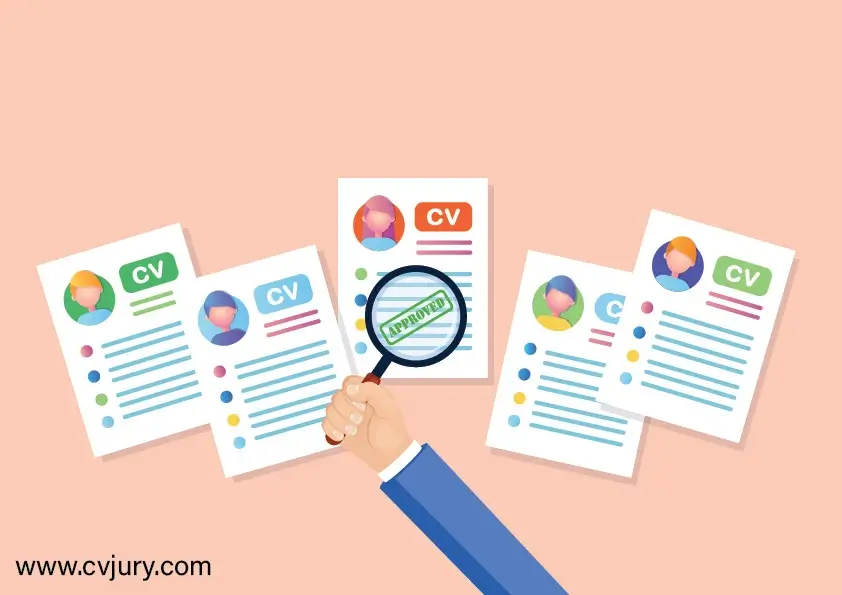
Understanding the Basics of CV
When applying for jobs, you should treat your CVs as VIPs. CVs are powerful representations of your skills, qualifications, and experiences.
You should consider your CV a persuasive tool that allows you to stand out from other applicants. It communicates your potential and makes a compelling case for why you are the perfect fit for the job.
So, if you’re serious about landing that dream job, it’s time to invest in boosting and optimising your CV.
But what makes a CV so crucial in the job application process? Well, it’s simple. If you have heard the famous quote, “You never get a second chance to make a first impression.” This is precisely what CVs stand for. Make your first impression count!
Your CV serves as your first impression on prospective employers. It’s your chance to make a lasting impact and pique their interest in what you bring.
Consider it a personal marketing brochure highlighting your qualifications, experiences, and accomplishments.
With a compelling CV, you can catch the attention of hiring managers and then get you to the company’s front door, securing that all-important interview opportunity.
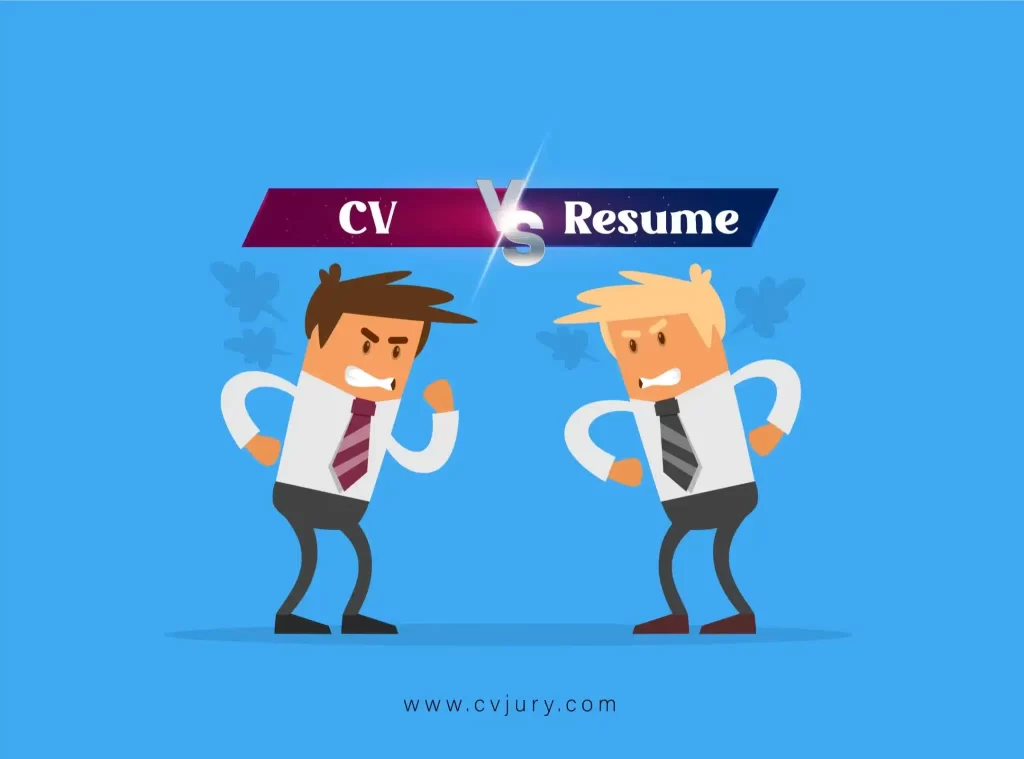
Key Differences Between a CV and Resume (In Job Search)
Most of the time, the terms CV and resume are used interchangeably, but they serve different purposes and are tailored for specific situations.
A CV, or a curriculum vitae, is a comprehensive, multipage document that provides an in-depth overview of your academic background, research experience, publications, and other accomplishments.
A CV is typically used in the USA to apply for scientific, legal, medical, or scientific roles. Your CV is not limited to a specific length and can be several pages long, allowing you to showcase a detailed account of your career journey.
On the other hand, a resume is a concise and targeted document that highlights your skills, professional experience, work history, and achievements.
It is typically limited to one or two pages. But if you are applying for top positions like that of a director, sometimes, it can be up to three pages. This is because you must show you have all the required experience.
Resumes are tailored to specific job positions and are designed to capture the attention of hiring managers quickly. They emphasise vital skills, accomplishments, and experiences related to the desired job role.
While a CV delves into your entire academic and professional history, a resume focuses on presenting a streamlined and tailored snapshot of your qualifications.
A CV emphasizes research, publications, academic achievements, and other scholarly pursuits. This makes it an excellent choice for those pursuing careers in academia.
On the other hand, a resume emphasizes professional experience, skills, and achievements related to a specific job role. This makes it an ideal option for most industries and positions.
Note: In the UK, a CV can also mean a resume. So, if you live in the UK and are asked to submit a CV unless the position is in the particular categories mentioned above, you should treat it like a resume.
Hence, we will use the terms (CV and Resume) interchangeably from here onwards.
Types of CV Formats
- Chronological CVs: Chronological CVs are the most common form. It shows your work history, including part-time job positions and academic qualifications based on date. But with the most recent jobs coming first. This format is perfect for people with no gap in their career profile and various skills to highlight.
- Functional CV: Also known as a skills-based CV, it focuses more on skills rather than positions held. This is perfect for people with gaps/breaks in their careers who have constantly improved their skills. A skills-based CV is suitable for people who do not have the required job title but have industry-specific experience and other skills.
The functional resume is similar to a standard chronological resume, except the work experience sections are organized by skills or functions rather than dates.
This is very valuable if you don’t have industry experience in the job title you’re applying for or are making a career change into a new path.
For example, let’s say you’re trying to get hired as a Data Analyst after being a postdoctoral researcher.
If you’re using the chronological resume, your Work Experience section would start with “Postdoctoral Researcher” or something similar, followed by your university and some dates.
Or it would start with whatever previous position you held that is NOT a data analyst, because you’ve never been one.
This makes your chances of getting through the ATS or applicant tracking system software nearly zero.
However, if you use the functional resume format…
You can put “Data Analysis Skills” as the top line under the Work Experience section, and then underneath that, put “Gained as a Postdoctoral Researcher” at your university.
Now, you have a much better chance of getting through the ATS.
- Combination CV: This combines the features of the two resumes described above. It places the same emphasis on skills and experiences (work history).
- Non-traditional CV: You are more likely to encounter this in the creative field, like music, photography, or fine arts. When hiring managers want to fill vacant positions, they request a creative sample that serves as a resume.
This can take the form of:
a. Online portfolio: Here, you create a sample of your creative work and upload it online so hiring managers can access it. The samples uploaded should reflect your style, draw attention to you, and show your creativity.
b. Video CV: You show your experience and versatility with digital products by making your resume in a video format. This is perfect for video editors applying for a video editing position.
c. Web pages: This is perfect for software developers and programmers. Or others who want to show their expertise by creating attractive digital products.
Now that we’ve clarified the differences between a CV and a resume, let’s continue exploring the essential components of a well-crafted CV.
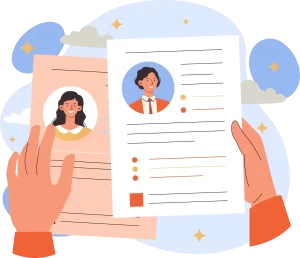
Essential Components of a CV
Ever attended an occasion like a summit or something, and the MC introduced the keynote speaker, and you were like, wow! I need to listen to this keynote speaker because he must be loaded. This is precisely what a good CV does.
Your CV creates an impression on your behalf and makes an initial introduction about you, your professional experience, and some necessary personal experiences you’ve acquired over the years of your career.
It should make the interviewer(s) say, “I would love to meet this person; she would be a great asset to the team.”
Your CV should contain the following information:
A Compelling Personal Profile or Summary
Your personal statement or summary is an opportunity to make a solid first impression and grab the hiring manager’s attention. It should concisely summarise your qualifications, skills, and career goals.
Use this section to showcase your unique value proposition and highlight why you are the ideal candidate.
Expert Advice
When composing your summary, be concise and specific. Use active words and focus on the value you can bring to the employer. Also, give some insight into your professional attitude. For example, are you a team player?
Highlight your key accomplishments and experiences that align with the job requirements. Tailor your personal statement to meet the specific needs of the position you are applying for.
Pro Tip
Consider starting your personal statement with a compelling opening sentence showcasing your expertise and achievements.

Highlighting Relevant Work Experience to Make Your CV Stand Out
Your job experience section is a critical component of your CV. It gives potential employers insights into your past roles, responsibilities, and achievements.
Also, include details like the company’s name, when you started working for it, and when you stopped working for it.
Most hiring managers are interested in your related professional experience that aligns with the job title you are applying for and the impact you made in your previous positions.
By highlighting these critical factors, you make it easy for the hiring manager to quickly scan the resume and determine if you fit the job title/position.
Considering that most employers/hiring managers spend seconds on resumes when making hiring decisions, frontloading your biggest wins can significantly tip the scale in your favour.
Expert Advice
When describing your relevant experience, use specific examples and measurable results to demonstrate your capabilities. Focus on showcasing your achievements, such as successful projects, process improvements, or revenue growth. Use action verbs and quantify your accomplishments whenever possible.
Pro Tip
If you have limited professional experience, consider including internships, volunteer work, or relevant information/projects to demonstrate your skills and dedication. Highlight transferable skills gained from these experiences that apply to your target job.
Showcasing educational qualifications and achievements
Include your academic qualifications, certifications, and corresponding training or professional development courses in the education section.
Emphasise achievements such as academic awards, scholarships, or notable projects. These demonstrate your commitment to learning and growth and, more importantly, show that you have the needed experience.
Expert Advice
List your educational qualifications chronologically, starting with the most recent. Include the institution, degree or certification earned, and related coursework or specialisation.
If you have limited work experience, your education section can play a significant role in showcasing your intelligence and potential.
Pro Tip
If you have extensive work experience, you can place more emphasis on your professional achievements from past jobs.
Yet, if you are a recent graduate or transitioning into a new field, highlight your educational accomplishments to demonstrate your readiness and dedication to acquiring knowledge in the sector.
Emphasising transferable skills and their importance
Transferable skills are valuable assets that you can apply across various industries and job roles. They include communication, teamwork, and leadership, among others. Emphasise them in your CV to demonstrate your versatility and adaptability.
Expert Advice
Identify the transferable skills that most correlate with the job you are seeking. Highlight them in your CV and provide specific examples of how you have applied these skills in previous roles or situations.
Emphasise the value of these skills to the position and how they can contribute to the organisation’s success.
Pro Tip
When listing your transferable skills, use soft skills (such as communication and teamwork) and hard skills (such as proficiency in specific software or tools). This showcases a well-rounded skill set and increases your appeal to employers.
Including certifications, training, and professional development
Certifications, training programmes, and professional development initiatives demonstrate your commitment to ongoing learning and improvement. Include related certifications and training courses that enhance your competency for the job.
Expert Advice
List certifications and training programs in a separate section under your education or skills section. Provide the name of the certification or programme, the issuing organisation, and the date of completion.
Highlight any certifications or training that align with the job requirements and showcase your expertise in specific areas.
Pro Tip
If you have recently obtained certification or completed a relevant training program, consider including a brief description of the skills or expertise acquired. This helps employers understand the value and relevance of your additional skills to the role.
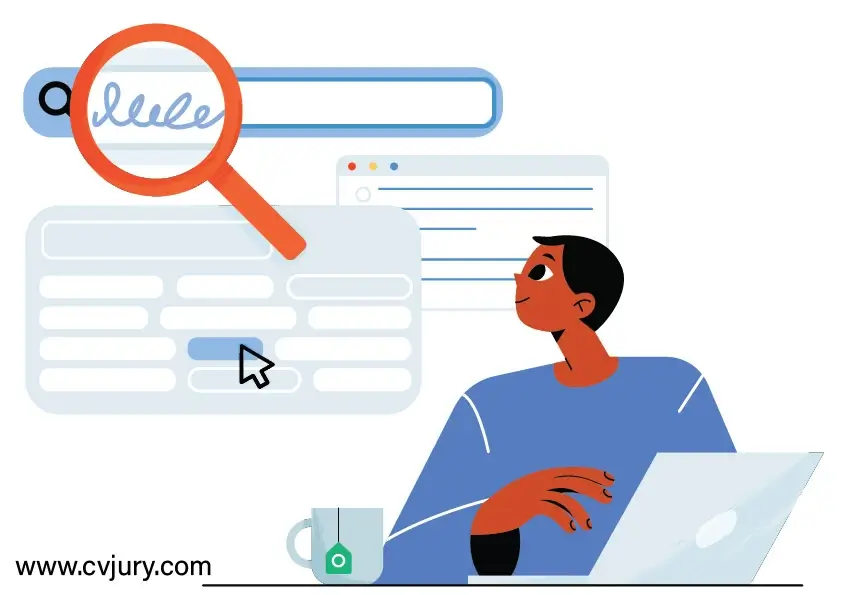
Incorporating job description keywords and optimising for applicant tracking systems (ATS)
Employers commonly use applicant tracking systems to streamline the recruitment process. These systems scan CVs for keywords and phrases that match the job requirements.
To do this, you need to carefully review the job advert, take note of the essential skills and keywords mentioned in the job description, and incorporate them into your resume. This will help you pass through the initial ATS screening.
Expert Advice
Carefully review the job ad and identify the keywords and phrases used. Incorporate these keywords naturally throughout your CV, especially in the personal statement, work experience, and skills sections. However, avoid overusing keywords and prioritise clarity and readability.
Pro Tip
While incorporating keywords is essential, remember that human readers will review your CV. Ensure your CV is well-written and engaging and showcases your unique capabilities and experiences. You can balance keyword optimisation with a compelling narrative that shows your value as a candidate.
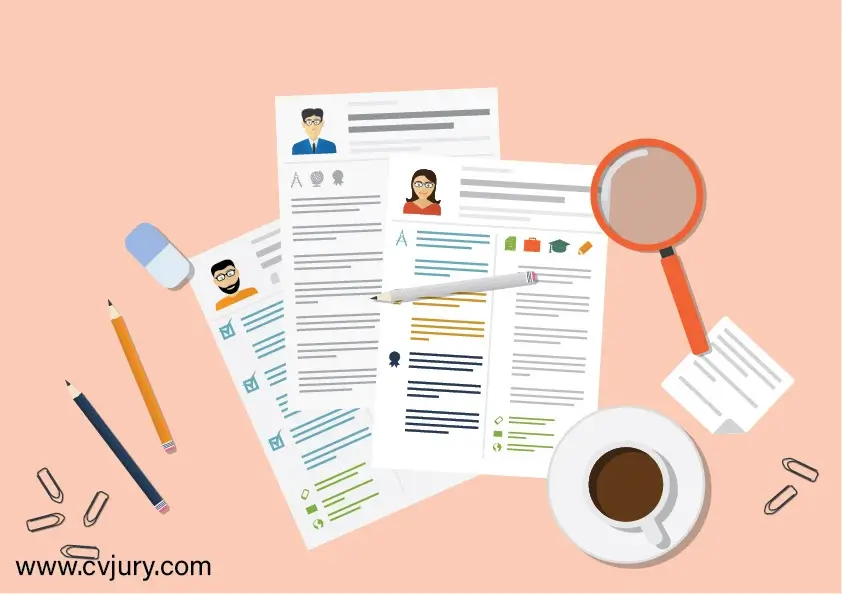
Must-have sections and nice-to-have sections
Must have:
- Personal Profile (Personal Statement)
- Work Experience
- Educational background
- Skills
- Contact Details: Include your Email, LinkedIn page, home address, phone number, and website link (if you have one):

Nice to have:
- Languages
- Awards
- Publications
- Volunteering Experience
- Additional courses and training
- Workshop/ Seminar participation
To avoid:
- Marital status
- Age
- Religious and political lineages
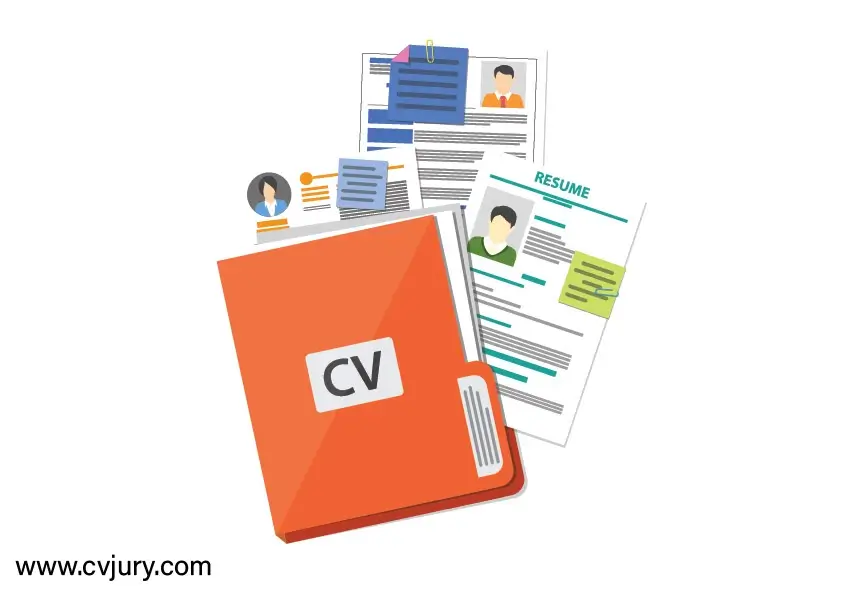
Formatting and design tips for a visually appealing CV
Long paragraphs are a big NO! The attention span of an average person is about 8.25 seconds. This means that you have just seconds to make an impression. So, making your resume easily scannable is essential, and this can be done by:
- Using a modern and professional font: Opt for fonts like Arial or Times New Roman, which are widely accepted and easily read. Avoid decorative or overly stylised fonts that may hinder readability. Also, your font size consistency matters. Use an 11-12-point font size for standard text and a 14-16-point font size for headers and titles
- Incorporate white space effectively: Use white space strategically to give your CV room to breathe. This helps avoid a cluttered appearance and enhances readability.
Pro Tip
Increase line spacing: Consider increasing the line spacing slightly to improve legibility.
Consistency is vital: Maintain consistent formatting throughout your CV. Ensure that headings, subheadings, font sizes, and bullet points are consistent across sections. This creates a cohesive and polished look. Use the ‘format painter‘ tool in MS Word to achieve formatting consistency:
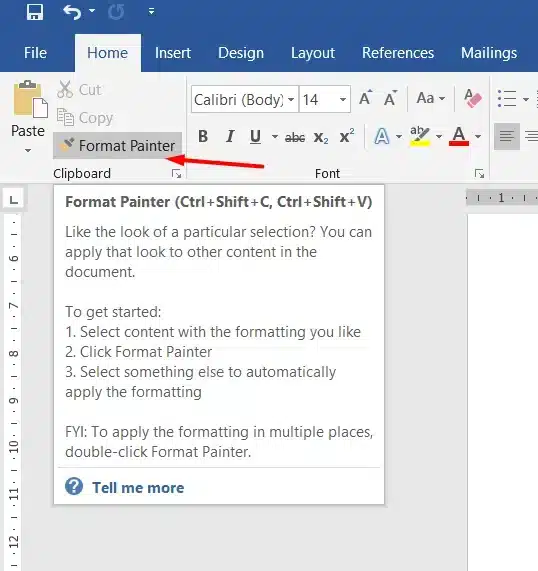
- Tailor your design to your industry: Depending on the nature of your field, you can incorporate design elements that align with your field. For creative roles, you may have more flexibility to showcase your artistic abilities. Yet, it’s generally safer for more traditional industries to stick to a clean and professional design.
Pro Tip
- Get inspiration: Explore CV examples or templates specific to your industry for ideas on striking the right balance between creativity and professionalism.
- Use visual cues sparingly: While making your CV visually appealing is necessary, be cautious about using excessive graphics or decorative elements. Remember that the primary focus should be on your competency and experiences. Use visuals sparingly and ensure they enhance rather than distract from the content.
- Consider a PDF format: Save your CV as a PDF file to preserve the formatting and ensure it looks the same across different devices and operating systems. This also prevents any accidental changes to the layout when it’s opened on other software.
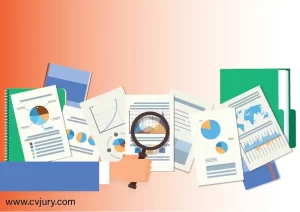
Research and Prepare
(Even When Applying for Different Jobs with Similar Job Descriptions)
Before diving into creating your CV, preparing yourself adequately for critical jobs with similar job descriptions is crucial. You’ll need to present a customised CV for each application. This step sets the foundation for a well-crafted and targeted CV.
Identifying Your Target Audience and Industry
To create an effective CV, it’s essential to understand your target audience and the field you’re applying to. Study the job market and industry trends to gain insights into the skills that employers are seeking.
This allows you to tailor your CV accordingly, showcasing the most relevant and appealing attributes to prospective employers.

Analysing Job Descriptions and Requirements
The job description is one of the most valuable resources during the CV writing process. An expertly crafted job description provides essential information about the skills and experiences employers desire.
So, you should ideally analyse these job descriptions carefully to add the keywords to your CV.
Pro Tip
When analysing job descriptions, pay close attention to the language and terminology used. Take note of the specific keywords and phrases that are commonly repeated. Those are the keywords to add.
Incorporating these keywords into your CV can help you demonstrate that you possess the desired skills and increase the chances of your CV getting noticed by applicant tracking systems (ATS) and hiring managers.
ATS software scans for relevant key terms and phrases in resumes and CVs. So, your CV must pass the ATS to stand a chance of being reviewed by a recruiter/hiring manager.
However, you must have a perfect CV because it still needs to stand out from the hundreds of other resumes.
Consider this scenario:
Once, Mark, a social media manager from Boston, was looking to transition into a more prominent firm. He had experience running successful campaigns but wasn’t sure how to stand out among hundreds of applicants.
He started using a free word cloud generator, inputting job descriptions to identify keywords. He discovered that the terms “ROI,” “engagement,” and “analytics” frequently appeared.
Mark revised his CV to emphasise how his campaigns had increased return on investment, improved audience engagement, and the use of analytics for decision-making.
He even included links to his professional LinkedIn profile, where recruiters could see endorsements for his skills. With this approach, his CV successfully passed the ATS and landed him several interviews, ultimately securing a job at his dream firm.
Like this post?
Sign up for our blog updates and never miss a post.
We’ll send you A FREE job interview eBook as a thank-you.
Self-assessment: Identifying Your Strengths, Skills, and Accomplishments
Before crafting your CV, conduct a thorough self-assessment. Identify your strengths, skills, and accomplishments that align with the requirements of the job you’re seeking.
Reflect on your past experiences, both professional and personal, and determine the unique value you can bring to a potential employer. You can ask an experienced, trusted friend to help with this stage.
Expert Advice: Think Beyond…
When assessing your skills and accomplishments, think beyond your formal work experience. Consider any volunteer work, internships, or projects you’ve undertaken.
Highlighting these experiences can demonstrate your versatility, dedication, and passion for the field.
Pro Tip
Describe your accomplishments using the STAR method (Situation, Task, Action, Result). This structured approach helps you provide specific examples showcasing your abilities and positive impact in previous roles.
Remember to quantify your achievements with numbers to prove your capabilities.
For example:
Established 17 new Exdell Perfume outlets in London through collaboration with national and departmental stores, resulting in a 9% profit jump, putting Exdell as the city’s No. 1 go-to perfume store.
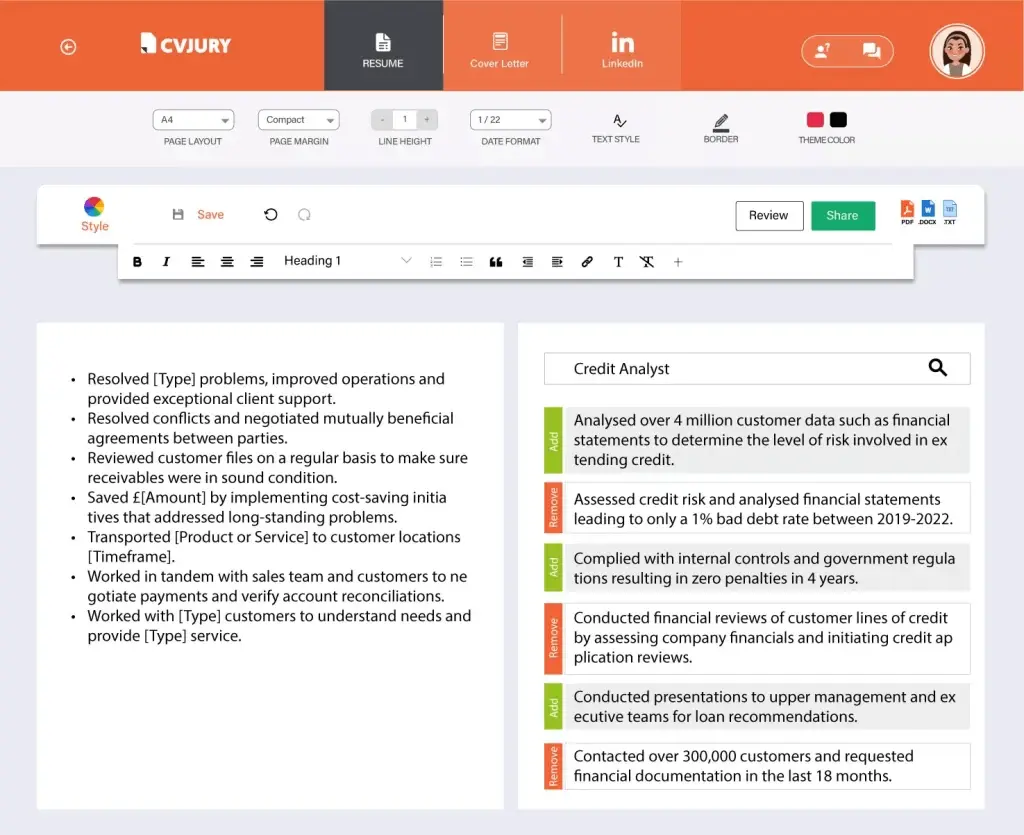
How to Identify and Showcase Transferable Skills Relevant to Different Industries
Transferable skills are valuable assets that can be applied across various industries and job roles. They demonstrate your versatility and adaptability, making you an attractive candidate.
Expert Advice
When identifying transferable skills, start by analysing the job description and requirements.
Look for skills applicable across different industries, such as communication, critical thinking, leadership, adaptability, etc. Employers highly seek these skills.
Pro Tip
Consider using a skills inventory or self-assessment tool to identify your transferable skills. Reflect on your past experiences, both in and outside of work, and identify instances where you used these skills effectively. This will help you recognise the breadth of your capabilities and how they can be applied in different contexts.
Transferable skills can become your saving grace. Consider Sarah:
Sarah worked as a bartender in one of London’s franchises to support herself through college. Although Sarah was studying economics and aiming for a career in consultancy, she initially felt her bartending experience was inconsequential.
Yet, when it came time to apply for consulting internships, she highlighted the skills she developed as a bartender on her CV.
She described how she handled a high-pressure environment, managed customer complaints, and even upsold specialty drinks to increase profits.
These bullet points painted a picture of a proactive problem-solver with strong people skills and a keen commercial sense.
Sarah was soon invited for interviews, and it wasn’t long before she secured a prestigious internship in one of the most sought-after consultancy firms in Central London.
Transferable skills have a tangible impact on your performance and the success of organisations. Here are some examples of how transferable skills can be showcased in your CV:
- Communication: Demonstrated exceptional communication skills by effectively conveying complex ideas to diverse audiences, resulting in increased team collaboration and successful project outcomes.
- Problem-solving: Successfully resolved complex challenges using analytical thinking and innovative solutions, leading to cost savings and process improvements.
- Leadership: Led cross-functional teams, fostering a collaborative and inclusive environment that enhanced productivity and achieved ambitious goals.
- Adaptability: Thrived in fast-paced and dynamic environments, quickly adapting to changing priorities and managing multiple projects simultaneously.

How to Effectively Convey Transferable Skills in Your CV
When you convey transferable skills in your CV, it’s essential to provide specific examples showing these skills’ impact and value. Here are some guidelines to help you effectively communicate your transferable skills:
- Use action verbs: Begin bulleted points with action verbs that highlight the skill in action, such as “managed,” “collaborated,” “analysed,” or “implemented.”
- Provide context: Briefly describe the situation or project where you used the transferable skill, outlining the challenges faced and the actions you took to overcome them.
- Quantify results: When possible, quantify the results or outcomes of applying the transferable skill. This could include metrics, percentages, or specific achievements.
- Tailor to the job description: Customise your content to align with the requirements and expectations outlined in the job description. This shows the employer that you have the skills they are seeking.
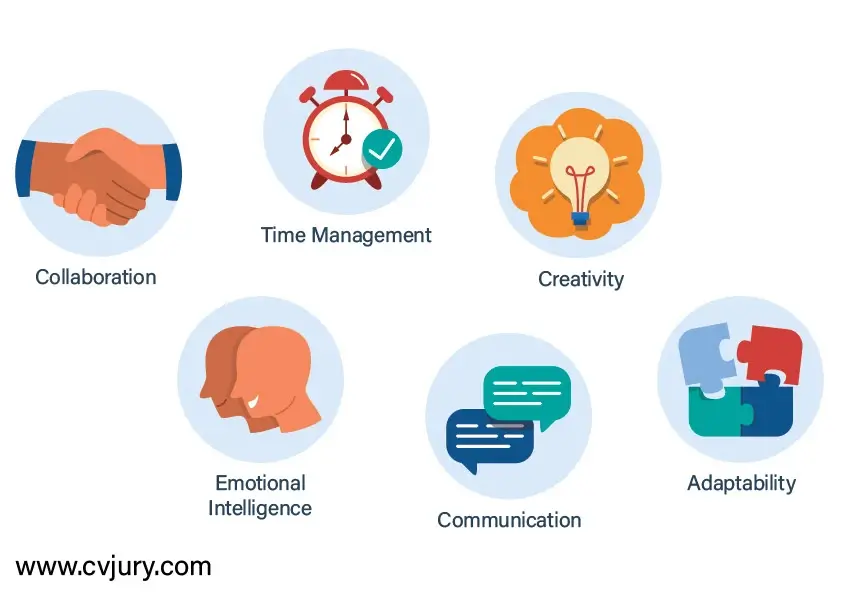
Transferable (Soft) Skills Worth Shouting Out About
If you have specific competencies or skills, highlight these in your resume.
For example, a non-native English speaker could include TOEFL, TOEIC, IELTS, or other English exam scores. The education section of your CV is ideal for highlighting language proficiency.
Transferable skills, when highlighted strategically, can become the silver lining, as it was in Linda’s scenario:
Linda had recently finished her Ph.D. at Cambridge and was ready to transition from academia to industry. However, she worried her experience wouldn’t translate to the private sector.
To address this, she focused on the transferable skills on her CV, showcasing her abilities in technical monitoring, self-assessment, negotiation, and innovative approaches.
She used bulleted points to emphasise how her investigation had identified new areas for exploration and showed how her findings influenced the broader field.
These stories showcased Linda’s ability to think critically, work independently, and innovate.
Also, her emphasis on “creativity” and “forward-looking approach” aligned with the job descriptions she was targeting. Linda soon found that her well-structured CV led to multiple job interviews in her desired role.
While there is a wide range of transferable skills, here are a few worth highlighting in your CV:
- Client-facing skills
- Commercial acumen
- Communication skills
- Conflict resolution & problem-solving
- Conflict management
- Emotional intelligence
- Entrepreneurial mindset
- Information and time management
- Legal and regulatory awareness
- Organisational skills
- People management
- Product and market insight
- Professional awareness
- Project management
- Relationship building and teamwork
- Adaptability
- Collaboration
- Compliance
- Creativity and innovation
- Decisiveness
- Delegation
- External awareness
- Flexibility
- Independence
- Influencing
- Leveraging diversity
- Leadership and management
- Negotiating
- Organisational Awareness
- Problem-solving
- Persuasion
- Resilience and tenacity
- Relationship Building
- Risk-taking
- Time management
- Teamwork

Power Words That You Can Use on Your CV
There are some impactful words you should use on your resume to significantly boost your chances of getting hired:
- Accelerated (a process)
- Achieved (results – specify)
- Advised (a company)
- Amplified (output, readership, response rate)
- Analysed (a spreadsheet, lab project, data set)
- Arbitrated (an issue)
- Boosted (sales, efficiency, experience)
- Broadened (audience)
- Brokered (a solution)
- Consulted (a company)
- Coordinated (your project, a group effort)
- Created (a process, programme, venture)
- Delivered (results – specify)
- Designed (a website, poster, method)
- Enhanced (sales, efficiency, experience)
- Established a relationship)
- Expanded (audience)
- Expedited (a process, a set of outcomes)
- Finalised (a deal)
- Forged (a relationship)
- Founded a student club or organisation)
- Fundraised (money and how much)
- Generated (revenue)
- Guided through a situation)
- Intensified (output, readership, response rate)
- Maintained (growth)
- Maximised (success − specify)
- Mediated (an issue)
- Navigated (a situation)
- Negotiated a solution)
- Optimised (success − specify)
- Organised (an event or group)
- Preserved (growth)
- Produced (articles, reports, spreadsheets)
- Produced (revenue)
- Provoked (sales, innovation)
- Quickened (a process)
- Resolved (a problem)
- Revolutionised (a system, structure, method)
- Secured a deal)
- Solved (a problem)
- Sped up (a process, a set of outcomes)
- Stimulated (sales, innovation)
- Sustained (growth)
- Transformed (a system, structure, method)
- Unified (various individuals or groups)
Further Reference:How to write and boost your CV
- Download our 268 soft skills. Choose the ones to shout about in your CV or resume.
- Best tips on salary negotiation by an HBR professor of negotiation.

Other Soft Skills to Highlight
Each individual possesses a unique personal story and set of circumstances. However, when applying for a job, it is vital to emphasise specific competencies and skills.
In addition to job-specific technical skills, have you pursued any advanced computer skills courses? For instance, advanced training in Microsoft Office applications. It is also valuable to mention any related personal projects.
Furthermore, don’t forget to provide details about any voluntary work you have undertaken. Volunteering demonstrates your motivation, willingness to contribute, and ability to collaborate.
I cannot stress enough the importance of using bulleted points in your CV to capture the reader’s attention. This technique lets you direct the readers’ focus toward the key points you wish to highlight. It also helps the recruiter or hiring manager navigate your CV effectively.

Technical Know-How
Each bulleted point must highlight relevant core expertise in your field.
Examples include accounting, JAVA, C++, mathematics, website development, economics, marketing, and other disciplines.
Measurable Results
Also, use transition words that demonstrate results. For example:
- Result in
- Evident (shown or proved) in
- Lead to
These words help show the outcomes and achievements in each situation you mention. Meanwhile, let’s see some examples of how to use bulleted points and transition words to boost your CV.

Examples:
- Strong leadership skills with professional experience in managing collaborative projects. This resulted in 11 published studies and a laboratory funding grant £120k.
- Skilled relationship builder with an advanced biological and chemical engineering background. This competency was evident in successfully optimising multiple nuclear magnetic resonance methodologies. And in organising 3 cross-functional collaboration projects. The success of these projects led to securing a grant of £0.5 million.
- An Innovator in nanotechnology and bioinformatics. This is evident in the 5 related patents secured and the discovery of 4 innovative composite micrometer medical treatments.
- Helped the project team obtain £10K in grant funding. Also, led a group of 18 engineers and technicians and completed all projects on time. The success achieved resulted in the renewal of grant funding annually.
- Possess industry awareness that helped identify key training areas needing enhancement. These included postgraduate/undergraduate student employability and entrepreneurship training. This led to the development of targeted programs for university and business school students.
- Possess excellent project management and communication skills. These were evident in the completion of a doctoral thesis. The thesis warranted a written commendation by the head of the programme. Also, the dean recommended this as exemplary in clarity and content organisation.
- Passionate and experienced university lecturer and scholar. Possess vast professional experience teaching undergraduate and postgraduate modules. This has led to two awards from the university based on student surveys.

How CVJury Can Help You Write An Impressive CV
Drafting an impressive CV is easy with CVJury professional CV templates. Our template builder guides you through the critical information to include in your CV with an easy-to-use layout.
As a result, you create a professional, relevant, job-specific CV to go with your cover letter. One that highlights your crucial work experience, competencies, and skills, which can take various forms.
When you read a job posting, can you identify whether the company is people-oriented, self-oriented, or systems-oriented? This information should help you categorise the transferable skills to add to your resume’s bulleted points.
3 Categories of Transferable Skills (and Examples)
People-oriented:
- Chain of communication (virtual)
- Change management
- Cross-functional collaborative (virtual)
- Flexibility and versatility
- Performance management
- Personnel development and virtual training
- Project management and task delegation
Self-oriented:
- Autonomy
- Completeness
- Initiative
- Stress management
- Technical communication
- Technical literacy
- Solid work ethic
Systems-oriented:
- Financial acumen
- Production
- Regulatory acumen
- Return on investments
- Risk management
- Risk mitigation
- Systemisation
- [Credit: Adapted from Cheeky Scientist]
What’s more?
CVJury has expert editors on standby to ensure your CV and other documents you produce from our builder are on target.
Our professional editors will vet, edit, and enhance your initial drafts so that your application can grab the attention of any recruiter you deserve.

CVJury Premium Resume Writing Services: 6 Easy Steps
At CVJury, we offer the best CV tools to enable you to show your unique value. And how can that value help a potential employer?
Then, turn your resume into a unique story that will make you the most valuable candidate for the position and help you get hired quicker.
When you work with our Premium Editing Service team, for example, we will support your resume writing process in:
- Selecting the resume template(s) right for you
- Critically examining the advertised jobs you’re targeting
- Examining the keywords of your targeted role
- Working with you to determine what your unique differentiators are
- Crafting the best bullet points for the different sections
- How you should be tailoring your resume when sending your next applications
Our team is ready to help you every step of the way, from how to fill out your application form to essential CV tips. And the best resume formats needed to help you build the case and prove that you’re the best candidate for the position.
Many people think aligning your resume is the best way to get interviews. Right? Wrong. Far from it.
It gets you hired. Your resume must undoubtedly align, but it must also be different. Instead, your Unique Value Proposition (UVP) gets you more interviews.
No worries if you don’t know how to differentiate yourself from the competition with your resume. Our team will help you identify your unique value proposition.
What do you put in your resume other than the technical skills? You must prioritise and present your information in a way that makes you stand out as the best candidate.

Let Your CV Speak for You
Now that you know how to write your CV and boost it, we hope you have figured out what you need to do on your CV to get noticed by your interviewers. So, implement those things and crush it at the interview.
Yet, if you want CVJury to help optimize, we’ve got you covered. All you need to do is rest while we make your CV do the talking for you.
Impressing recruiters and getting a good job takes more than a well-written CV.
Do you want to know what you can do to help prepare yourself to land the job you deserve after graduation? Check out ‘How Job Seekers Can Get A Job Faster After Graduating’
Best wishes!


